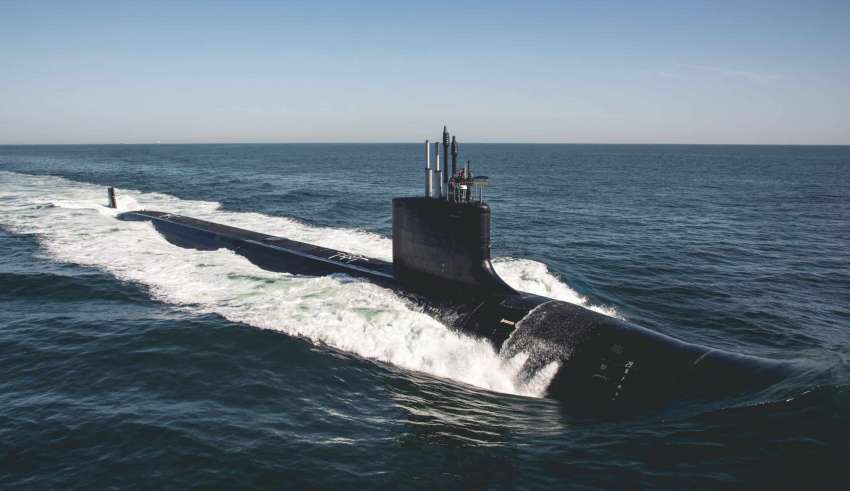By Brian Boyd
Embarrassment
For Australia to be contributing $3 billion dollars, to bump up submarine production in the US, on a promise that we may receive up to 3 to 5 second-hand Virginia class submarines within a decade, is an insult to the Australian public. It is repeatedly speculated that this promise under so-called pillar 1 of A U K U S, may never eventuate, due to the agreement can be made null and void at any time by the US.
Within the A L P, the sight of the current federal defence Minister Richard Marles making such payments, has been described as a “humiliating sight”. A recent resolution to an A L P conference included the following: “Australia’s defence arrangements must be protected from the changing international strategic landscape, which needs an independent foreign and defence policy and a reliable domestic defence industry”.
This internal issue is never properly explained or addressed by the government.
The new eleven frigates being purchased from Japan, to replace the ageing Anzac-class frigates are to be delivered over the next ten years. The first one may be delivered within five years. Much was made over the years that at least eight of the eleven were due to be built at Perth’s Henderson shipbuilding precinct. Now we are being told that there is “no guarantee” that this will happen. So much for the hype that successive governments have made about thousands of Australian jobs are going to be generated. Never mind about the claim that Australia will be developing our own “sovereign defence capacity”.
Pillar 2 of the so-called A U K U S plan, now over four years old, was also to see advanced military capabilities developed within Australia. This is now being described as showing “little progress” over that time (Australian, 11/8/25). Australian-based manufacturing companies have been complaining bitterly about the lack of contracts being offered by the Defence Department.
Meanwhile it is reported, although not very widely, the following:
“Australia and the US have never been more integrated militarily.
“This cooperation is expanding at an astonishing pace and without most Australians knowing much about it.
“Unfortunately, defence Minister Richard Marles and his department are not very forthcoming about the size and scope of US use of the facilities and its personnel in Australia and future plans to expand this presence.”[Reference here- facilities like Pine Gap and the Geological and Geophysical Research station, both in Alice Springs, the Learmonth Solar Observatory in Western Australia, the US naval base at Northwest Cape and the Defence Satellite Communication station, to name some of them.]
Key Question for Australia
The geopolitical settings are changing so profoundly and so quickly, Australia is facing consequential challenges to its place in the world.
Any “military adventurism” by the great powers, especially the US or China or both, will have an impact on our nation. Australia’s foreign and strategic policies has to face up to this reality. Successive governments have not allow the necessary public conversations to occur around this issue.
It is wrong to simply concentrate on the question whether Australia will join in, or not join in, any future conflict involving the US.
If such a conflict involves the US and China, then THE key question is for China to answer. And that is, will the US military and spying facilities based on Australian soil, become a military target, regardless of any view the Australian government takes on the specifics of conflict breaking out?
Many ‘experts’, using the media, regularly talk about the threat from China. No details are ever provided, on the actual nature of this threat, are given.
The Australian government has said it has high level and regular dialogue with China, on both trade and security matters. In 2024 it was revealed that China and Australia had committed to improving communications between the Australian Defence Force and China’s People’s Liberation Army.
In more recent times Chinese representatives have expressed concerns about the US pushing the Albanese government to increase military spending. More specifically, they have argued that Australia doesn’t need to be involved in the A U K U S security pact. China talks up the importance of the Australia-China comprehensive relationship.
Regardless, ‘the key question’ remains, to be answered by China.
It has been reported: “Australia falls within the range of Chinese I C B Ms; this degree of vulnerability to long-range missile attack is a first in our (that is Australia’s) strategic history and something for which the A D F is completely unprepared”.[Peter Jennings, Australian, 3/9/25].
Similarly, another commentator speculated that Beijing’s missile capabilities could be used against “American ships in the event of conflict over Taiwan… or to hit targets in northern Australia”.
A number of US politicians have openly declared that Australia has become “the central base of operations” for America’s military to deter China in the Indo-Pacific.
“Beijing knows this, of course, making these sites potential targets the Chinese ballistic missiles if war breaks out between the US and its superpower rival” (Ben Packham, Australian, 12/7/25).
After the Chinese military parade in early September, a spokesperson from the Lowy Institute’s international security program, commented on the unveiling of the Dongfeng-61 land-based intercontinental missile, with a range extending beyond 14,000 kilometres. It was reported that the strategic nuclear missile ‘has the entire globe within its strike range, meaning you could hit targets in the US, Europe and Australia’.
According to a key US think tank, Washington’s Centre for Strategic and Budgetary Assessment, “China’s acquisition of long-range strike capabilities-has brought Australia in range of the P L A… ballistic missiles could reach their targets in tens of minutes, and China’s development of hypersonic weapons adds a new dimension to the threat”.
When it was recently discovered that Iran had conducted “dangerous acts of aggression… on Australian soil”, it was deemed by the government as a “hostile act” by a foreign nation. The government received much public support for condemning such activity.
It’s only logical that China be asked -could it mount attacks on Australian soil in any future conflict. The Australian people are entitled to know the answer and be given time to insist our national government formulate a foreign policy and defence strategy response, based on genuine national interests and protection of our continent.
Confected narratives and propaganda
All of the great powers spend much effort in creating a positive spin on both their versions of history and in selling their current economic and geopolitical aspirations, all to advance their global interests.
Churning out crafted narratives (some of it outright propaganda), to gain an edge over their respective great power rivals, has become a daily ritual. The use of ‘soft power’ is also utilised.
2025 marks the year of the 80th anniversary of the victory over fascism in World War II. Russia marked the occasion with a huge military parade in Moscow; Britain held a large military pageantry event in London; the US, on the president’s birthday, held a huge military parade in Washington and China in early September, held a massive military extravaganza in Beijing.
These great powers was simply sending messages to each other, in the context of their increasing rivalry, as well as for internal public consumption.
All practice psychological warfare in various ways as part of attempts to control the “grand narratives”. Shaping media reportage is a key aim of the strategy. Australians can see this happening almost every day, in key parts of the monopoly media.
The Australian public is entitled to be very cynical about what all the major powers are selling, to justify their essentially economic aspirations. There should be no war of any kind over where, what multinational, what corporation, what state-based enterprise or what crony oligarchy, does business in the global economy.
Like a number of other countries Australia should seriously consider adopting strategic autonomy and armed neutrality, while promoting the struggle for peace in all forums.







